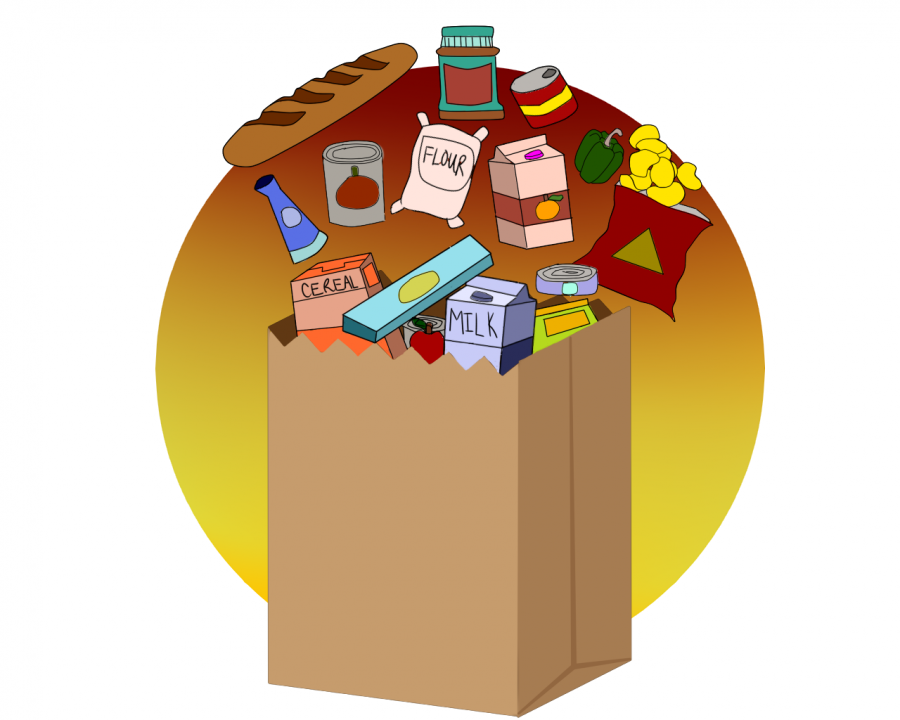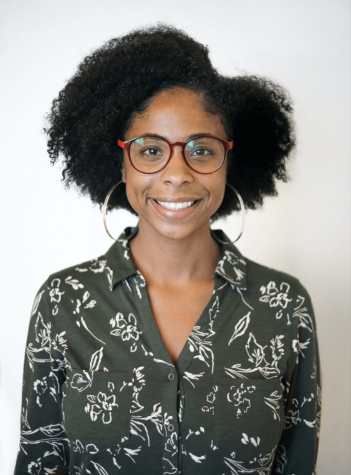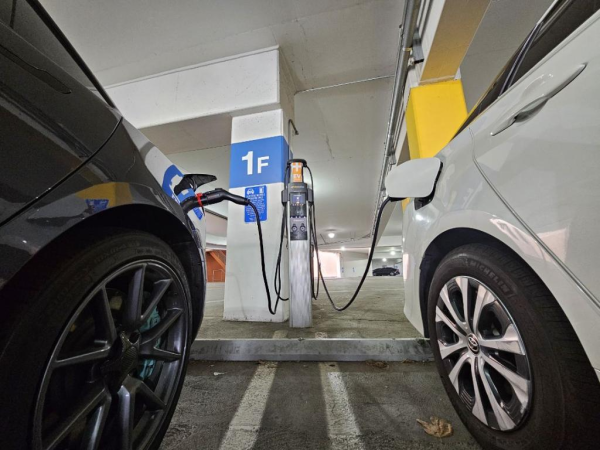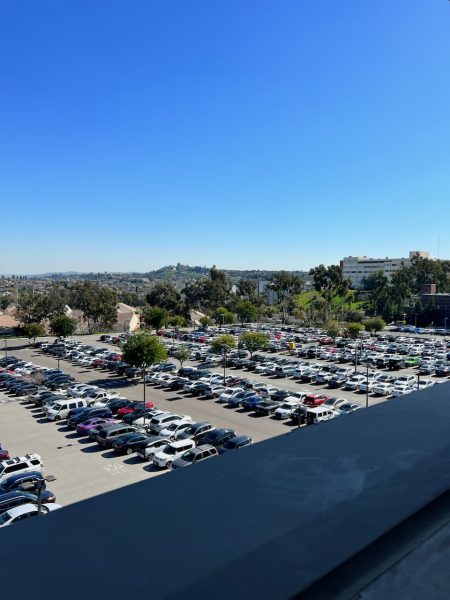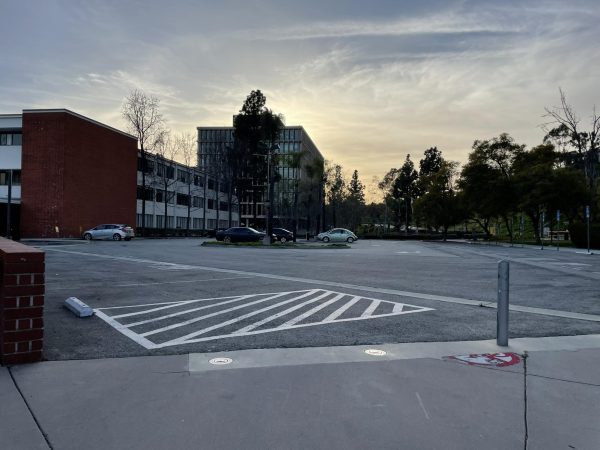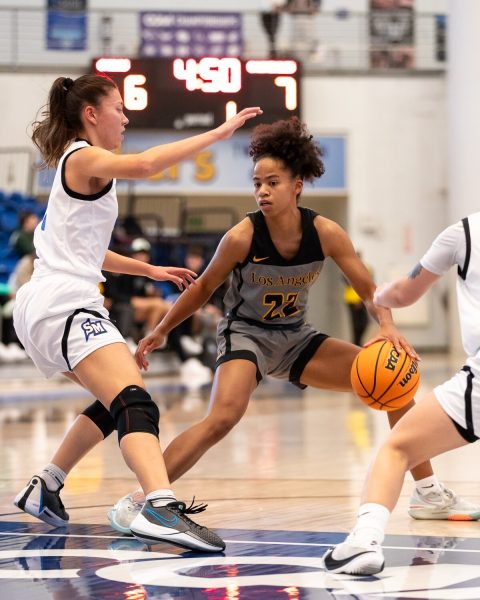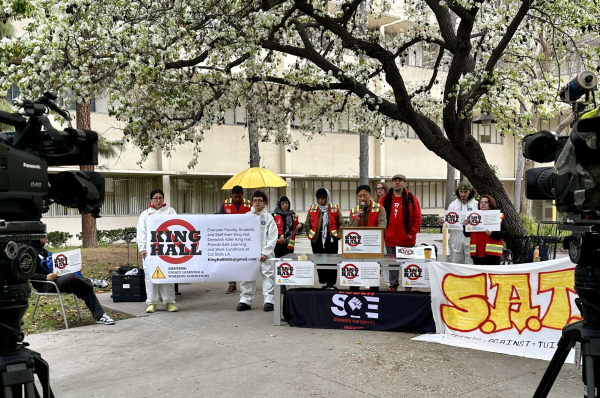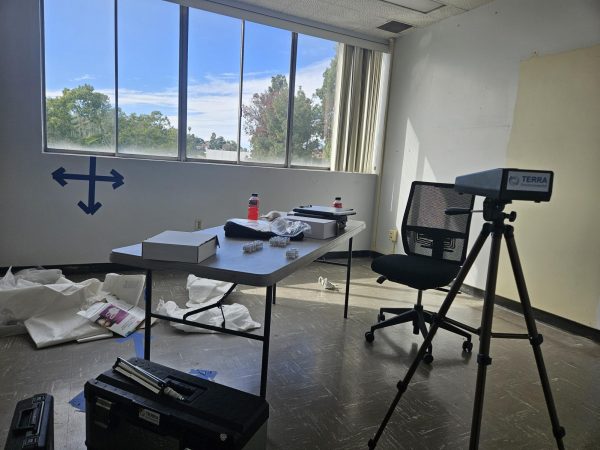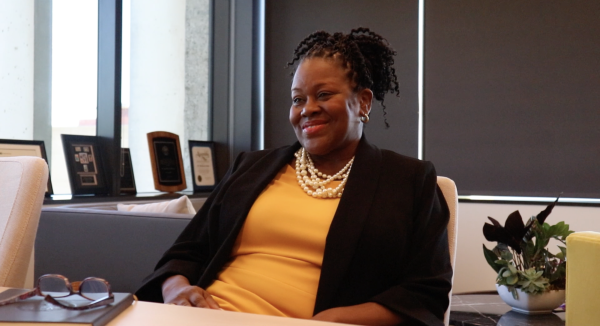Food Pantry’s Service Day Brings Light to Food Insecurity
Cup of noodles, fruit snacks, pasta, soup, beans, cereal, corn, tomato sauce and fruit cups were some of the many items found in free pre-filled bags given to Cal State LA students at the Food Pantry’s Service Day.
“Our food pantry opened in April of 2017 – since its opening, we served approximately 8,500 students,” stated Sesley Lewis, coordinator of food and housing security.
College students who are food insecure, may have trouble “focusing and concentrating in their classes,” said Lewis.
A study from the California State University Basic Needs Initiative (CSU BNI), updated in April 2019, shows that students who are food insecure have been linked to having low GPAs. The initiative states there is an urgent need for CSU campuses to provide resources and serve student needs.
According to the study, “41.6 percent of CSU students reported food insecurity, 20 percent of experienced low food security and 21.6 [percent experienced] very low food security.”
Food security is described by the United States Department of Agriculture as having “dependable access to enough food for active, healthy living.”
The CSU BNI study also revealed “51.9 [percent] of all students were unaware of a food pantry located on campus or said such services were not available.”
Junior Political Science major and veteran, Geaquari Carlisle, said that he learned about Cal State LA’s Service Day at the Veteran Resource Center. Since Carlisle has to cut his full-time work hours for school, he finds the food pantry beneficial while waiting for his GI benefits to kick in.
“The Food Pantry allows me to kind of get more access to more food in situations where I’m getting paid less and waiting for my benefits,” said Carlisle.
GI Bills help qualified veterans, Reserves and National Guard Armed forces and their families to cover all or some cost for educational or training expenses.
Although few veterans participated in the study, the CSU BNI shows that, “a greater proportion of students who identified as homeless (6.9%) indicated using the GI Bill compared to students who were only food insecure (4.3%), food insecure and homeless (5.3%).”
Among the many barriers that homeless and food insecure students endure are the personal and societal stigmas associated with the lack of their basic needs, according to the study.
“I think food insecurity is a huge issue here at Cal State LA,” stated Public Health senior Elizabeth Perez.
Perez reported that students are not always open to talking about their experiences with food insecurity and should not be afraid to ask for help.
“Food should be for everybody; it shouldn’t just be for people who can afford it,” Perez added.
Cal State LA CalFresh Outreach Center is partners with the campus food pantry.
CalFresh, federally known as the supplemental Nutrition Assistance Program (SNAP), is “a nutrition assistance program that helps low-income individuals and families buy the food they need” and “incorporate health foods like fruits and vegetables into their diets.”
Lewis encourages students that are eligible for CalFresh to use those dollars for fresh produce and meat – “and then come into the food pantry to get the non-perishable items” – to maximize their dollar.
Students can apply for CalFresh dollar benefits at the Office of the Dean of Students’ web page at http://www.calstatela.edu/deanofstudents/calfresh-outreach-center and complete the pre-screening online.
Service Days are on Wednesdays, between the hours of 11 a.m. to 1 p.m. and 3 p.m. to 5 p.m., room 308E in the University Student Union. For a free pre-filled bag of food, bring proof of current enrollment and a Cal State LA student ID card.
For appointments outside of this schedule, contact 323-343-3103. To make food donations, follow the steps provided on the Cal State LA dean of students’ website.

